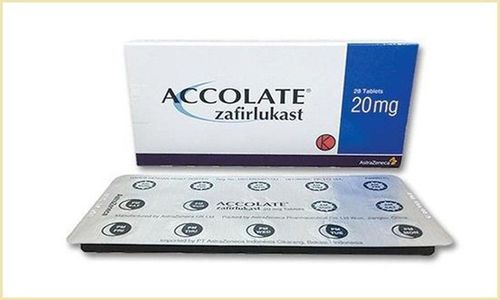This is an automatically translated article.
A-Methapred is used for a variety of health problems such as allergies, asthma, adrenal problems.... Use as directed by your doctor.
1. What is A-Methapred?
A-Methapred drug with the main active ingredient is Methylprednisolone, used by injection, this is an active ingredient in the group of Glucocorticoids.
Methylprednisolone injection helps to soothe inflamed areas of the body and is used to treat a number of conditions such as: inflammation (swelling), severe allergies, adrenal gland problems, arthritis, asthma , blood or bone marrow problems, eye or vision problems, lupus, skin conditions, kidney problems, ulcerative colitis, and flare-ups of multiple sclerosis.
Methylprednisolone is a corticosteroid that works on the body's immune system, helping to reduce swelling, redness, itching, and allergic reactions. A-Methapred should only be used under the direct supervision of a physician.
2. Notes before using A-Methapred
When deciding to use A-Methapred, the risks of taking the drug must be weighed against the benefits it offers, for A-Methapred the following should be considered:
Allergies: Give your doctor knows if you have ever had any unusual or allergic reaction to A-Methapred or any other medicine, including an allergy to foods, dyes, preservatives, or animal meat. object. For children: Studies performed to date have not demonstrated pediatric-specific problems that would limit the usefulness of methylprednisolone injection in children. However, pediatric patients are more susceptible to growth retardation and bone problems if methylprednisolone is given for a long time. The recommended dose of A-Methapred should not be exceeded and the patient must be carefully monitored during treatment. Note, brands of methylprednisolone injection contain benzyl alcohol which can cause serious unwanted effects in premature babies. Geriatrics: Studies performed to date have failed to demonstrate age-related problems that would limit the usefulness of methylprednisolone injection in the elderly. However, elderly patients are more likely to have liver, kidney, or heart problems, so caution and an adjustment in the dose of A-Methapred may be needed for elderly patients receiving methylprednisolone injection. Lactation: There are no adequate studies in women to determine the risk to the infant when using A-Methapred while breast-feeding, however the potential benefit should still be weighed against the breast-feeding infant. possible risks before taking A-Methapred. Using A-Methapred while you are pregnant can harm your unborn baby. Besides, it is possible to use an effective method of birth control to prevent pregnancy, if pregnancy is suspected while taking A-Methapred, let your doctor know immediately.
3. Interaction of A-Methapred with other drugs
It is not recommended to use A-Methapred with any of the following medicines, the doctor may decide not to treat it with A-Methapred or change to a different drug the patient is taking:
Desmopressin ; Live Rotavirus Vaccine. Using A-Methapred with any of the following medicines is generally not recommended, but may be required in some cases after your doctor considers changing the dosage or frequency of use of 1 or both: 2 drugs:
Aceclofenac; Acemetacin; Aldesleukin; Amtolmetin Guacil; Balofloxacin; Bemiparin; Besifloxacin; Bromfenac; Bufexamac; Bupropion; Celecoxib ; Choline Salicylate; Ciprofloxacin; Clonixin; Cobicistat; Dexibuprofen; Dexketoprofen; Diclofenac; Diflunisal; Dipyrone; Droxicam; Enoxacin; Etodolac; Etofenamate; Etoricoxib ; Felbinac; Fenoprofen; Fepradinol; Feprazone; Fleroxacin; Floctafenine; Hydrofluoric acid; Flumequine; Flurbiprofen; Gatifloxacin; Gemifloxacin; Ibuprofen; Indomethacin; Ketoprofen; Ketorolac; Levofloxacin; Lomefloxacin; Lornoxicam; Loxoprofen; Lumiracoxib; Lutetium Lu 177 Dotatate; Macimorelin; Meclofenamate;; Mefenamic acid; Meloxicam; Morniflumate; Moxifloxacin; Nabumetone; Nadifloxacin; Nadroparin; Naproxen ; Nepafenac; niflumic acid; Nimesulide; Nimesulide Beta Cyclodextrin; Nirmatrelvir; Norfloxacin; Ofloxacin; Oxaprozin; Oxyphenbutazone; Parecoxib; Pazufloxacin; Pefloxacin; Phenylbutazone; Piketoprofen; Piroxicam ; Pranoprofen; Proglumetacin; Propyphenazone; Proquazone; Prulifloxacin; Ritonavir; Rofecoxib; Rufloxacin; salicylic acid; Salsalates; Sargramostim; Sodium Salicylate; Sparfloxacin; Sulindac; Telaprevir; Tenoxicam; tiaprofenic acid; Tolfenamic Acid; Tolmetin; Tosufloxacin; Valdecoxib; Voriconazole. Using A-Methapred with any of the following medicines may increase your risk of certain side effects. However, using both drugs may be the best treatment for a patient, when both drugs will be prescribed together after the doctor has changed the dosage or frequency of use of one or both of them. 2 drugs.
Acenocoumarol ; Alcuronium; Aprepitant; Aspirin; Atracurium; Auranofin; Carbamazepine; Clarithromycin ; Cyclosporine; Dalfopristin; Diltiazem; Erythromycin; Fluindione; Fosaprepitant; Gallamines; Hexafluorenium; Ketoconazole ; Licorice; Metocurine; Mibefradil; Nefazodone; Phenobarbital; Primidone; Quinupristin; Rifampin; Saiboku-To; Troleandomycin; Warfarin. The presence of other medical problems may affect the use of A-Methapred, especially:
Allergy to cow's milk; Brain damaged ; Cerebral malaria; Systemic fungal infections; Herpes simplex eye infections; Idiopathic thrombocytopenic purpura should not be injected with A-Methapred; Cataract ; Congestive heart failure ; Cushing's syndrome; Depression; Diabetes; Emotional problems; Eye infections; Glaucoma ; Heart attack; Heart disease; Hyperglycemia (high blood sugar); Hypertension (high blood pressure); Liver disease (cirrhosis, hepatitis); Mental illness; Myasthenia gravis (severe muscle weakness); Osteoporosis (weak bones); stomach or intestinal problems (eg, diverticulitis, ulcers, ulcerative colitis); Thyroid problems; Inactive tuberculosis should be used with caution, as A-Methapred can make conditions worse; Infections (bacteria, viruses, fungi, parasites, or protozoa), A-Methapred may decrease the body's ability to fight infections.
4. How to use A-Methapred properly?
This section provides information on the proper use of certain products that contain methylprednisolone.
A nurse or other trained medical professional will treat the patient with this medicine. The medicine can be injected through a needle into one of the patient's veins or into a muscle or joint... The doctor may prescribe multiple doses of A-Methapred until the patient's condition improves. improved, then switched to the oral form of methylprednisolone for the same effect.
If the patient is taking A-Methapred for a long time, the skin at the injection site may be slightly sunken or wrinkled, so talk to the doctor if the patient notices any changes at the injection site. injection site such as: skin indentation or pain, redness or peeling of the skin.
A-Methapred may cause an allergic reaction such as life-threatening anaphylaxis, seek immediate medical attention if you have a rash, itching, trouble breathing, trouble swallowing or any swelling. in your hands, face, or mouth while you are taking A-Methapred.
If you are taking A-Methapred for a long time, tell your doctor about any stress or anxiety in your life, including health concerns and emotional stress. The dose of A-Methapred may need to be changed for a short time when the patient is stressed.
Using too much of A-Methapred or taking it for a long time can increase your risk of adrenal problems. Patients should talk to their doctor right away if they have more than one of the following symptoms after taking this medicine: blurred vision, dizziness or fainting, fast, irregular or pounding heartbeat, extreme thirst or urination. more, unusual discomfort or fatigue or weakness.
A-Methapred should be avoided in patients with infections related diseases. If the patient begins to have a fever, chills, sore throat, or any other sign of infection, call the doctor immediately.
During treatment with methylprednisolone injection, the patient should not be vaccinated (vaccinated) without the approval of the doctor. Methylprednisolone can lower your body's resistance and the vaccine may not work as well or you may have an infection with the same agent that the vaccine is intended to prevent.
In addition, people taking A-Methapred should not be around other people living in the household who receive live virus vaccines, as there is a potential for virus transmission. Some examples of live vaccines: measles, mumps, influenza (flu vaccine), polio virus (oral form), rotavirus and rubella;
Tell your doctor immediately if blurred vision, difficulty reading, eye pain or any other change in vision occurs during or after treatment with A-Methapred.
Talk to the doctor immediately if the patient has pain or tenderness in the upper abdomen, pale stools, dark urine, loss of appetite, nausea, vomiting, yellowing of the eyes or skin... these may be symptoms. symptoms of a serious liver-related problem.
A-Methapred may cause osteoporosis or growth retardation in children if taken for a long time, tell the doctor if the patient has bone pain or is at risk of osteoporosis;
A-Methapred may cause changes in mood or behavior in some patients, therefore caution should be exercised for manifestations of depression, mood swings, unusual feelings of happiness, difficulty sleeping or personality changes when taking the drug A-Methapred.
Do not stop receiving A-Methapred suddenly without a doctor's prescription, A-Methapred drug needs to be gradually reduced before stopping completely in cases where A-Methapred has been used for a long time.
5. Side effects of A-Methapred
Along with these helpful effects, A-Methapred can cause some unwanted effects, tell your doctor or nurse immediately if any of the following side effects of A-Methapred occur- Methapred :
Excited; Blurred vision; Decreased urine output; Dizzy; Heart beat fast, slow, pounding... abnormal; Headache; Mental decline; Mood swings; Noisy, uncomfortable breathing; Numbness/tingling of hands or feet; There is a pounding sound in the ears; Swelling of fingers, hands, feet, or legs; Shortness of breath at rest; Weight gain . More rare side effects of A-Methapred:
Cough; Difficulty swallowing; Rash, itching; Puffiness or swelling of the eyelids/face/lips/tongue; Chest tightness; Shortness of breath; unusual tiredness or weakness; The side effects of the drug A-Methapred have not yet been encountered:
Back pain; Bloody, black, or tarry stools; Chills; Dark urine; Skin darkening; Reduced height; Decreased vision; Diarrhea; Eye pain or tearing; Facial hair growth in women Fainting; Fever; flushing, dry skin; Fracture; The breath smells like fruit; Fuller or rounder face, neck or torso; Ợ sour or indigestion (severe and persistent); Hoarseness ; Frequent hunger; Frequent thirst; Increased frequency of urination; Light colored stools; Loss of appetite; Loss of libido or decreased sexual ability; Lower back pain or pain on one side; Irregular menstruation; Nausea; Sore throat; stomach cramps or burning (severe); Sweat; Difficulty sleeping; Unexplained weight loss; unusual tiredness or weakness; Right upper abdominal pain or epigastric pain; Change of vision; Vomiting; Yellow eyes, yellow skin. Some side effects of A-Methapred can occur without medical attention, these side effects may go away during treatment as the body adapts to A-Methapred.
A-Methapred is used for a variety of health problems such as allergies, asthma, adrenal problems.... Use as directed by your doctor.
Follow Vinmec International General Hospital website to get more health, nutrition and beauty information to protect the health of yourself and your loved ones in your family.
Please dial HOTLINE for more information or register for an appointment HERE. Download MyVinmec app to make appointments faster and to manage your bookings easily.
Reference source: drugs.com













